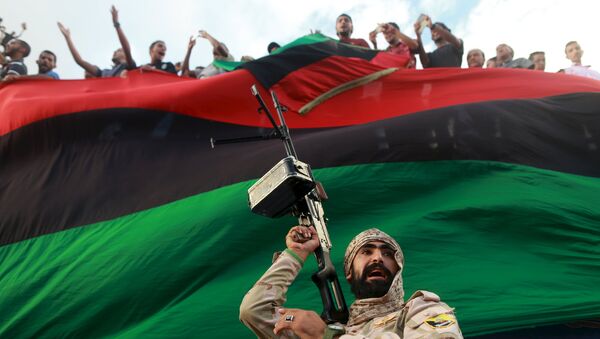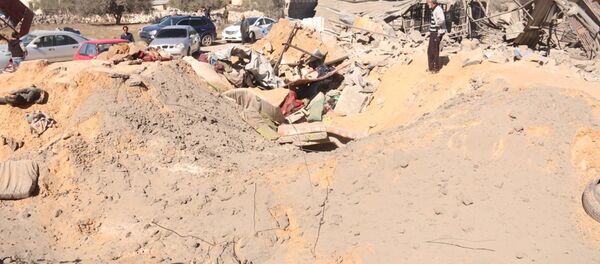As violence grows in Libya, the question arises if it is the time for Washington to order "decisive military action" against Daesh (ISIL/ISIS) in the country; however, there is almost no evidence to suggest that using force in Libya will mend the crisis, retired Lt. Col. Daniel L. Davis stresses.
"There is almost no evidence to suggest using force in Libya will improve the situation — and plenty of examples in the past two decades to suggest that it would do just the opposite: Afghanistan 2001-present, Pakistan (drone war, 2005-present), Iraq (2003-11, 14-present), Yemen (drone war, 2009-present), Libya 2011 and Syria 2014-present — the violence and instability in every single one of those locations is far greater today than it was before we intervened militarily," the US analyst writes in his article for The National Interest.
"Without a doubt, the political, security and humanitarian situations in Libya are all profoundly worse today than before Western military intervention," Davis notes.
Those who are lobbying for an invasion of Libya led by the West in order to curtail Daesh's advance should ask themselves whether "injecting yet more armed violence into Libya will improve security."
On Sunday, a UN-backed Presidential Council in Libya reported that the parties had reached compromise regarding a revised national unity government.
However, on Tuesday Libya's parliament decided to postpone for seven days a vote on a list of ministers despite the international concerns over the threat posed by Daesh and affiliated jihadi forces to the country.
It is believed that the new administration will finally end the chaos.
US official: US F15s carry out strike vs #ISIS base in W Libya, targeting Noureddine Chouchane.
— Jennifer Griffin (@JenGriffinFNC) 19 февраля 2016
According to Davis, a new military operation in Libya would throw a monkey wrench in the peaceful developments in the region. He expressed concerns that in the result of violence new forces may emerge and take the power despite the will of the Libyan people.
According to the analyst, Western powers may jump at the opportunity to use a new national unity government in Libya for legitimization of their potential military campaign.
"The key question here is: if the West is, after all, going to militarily intervene in Libya, why does it need to install a national unity government in the first place? The answer lies in their Syria experience. As opposed to the West's way of [conducting] illegitimate interventions across the world, the Russian military campaign against Islamist forces in Syria is fully legitimate in that it started only after Russia was invited by the Syrian authorities," Sheikh warned.
Davis insists that the US war planners should think twice before launching a full-scale military operation.
Thanks to the brave American pilots flying dangerous missions in #Libya. Our next Pres needs a strategy to permanently defeat #ISIS
— John Bolton (@AmbJohnBolton) 19 февраля 2016
"Sometimes, as hard as it is for many to accept, the most effective way to safeguard American interests and minimize human suffering is to withhold using deadly force and, instead, redouble our diplomatic might," he stresses.



